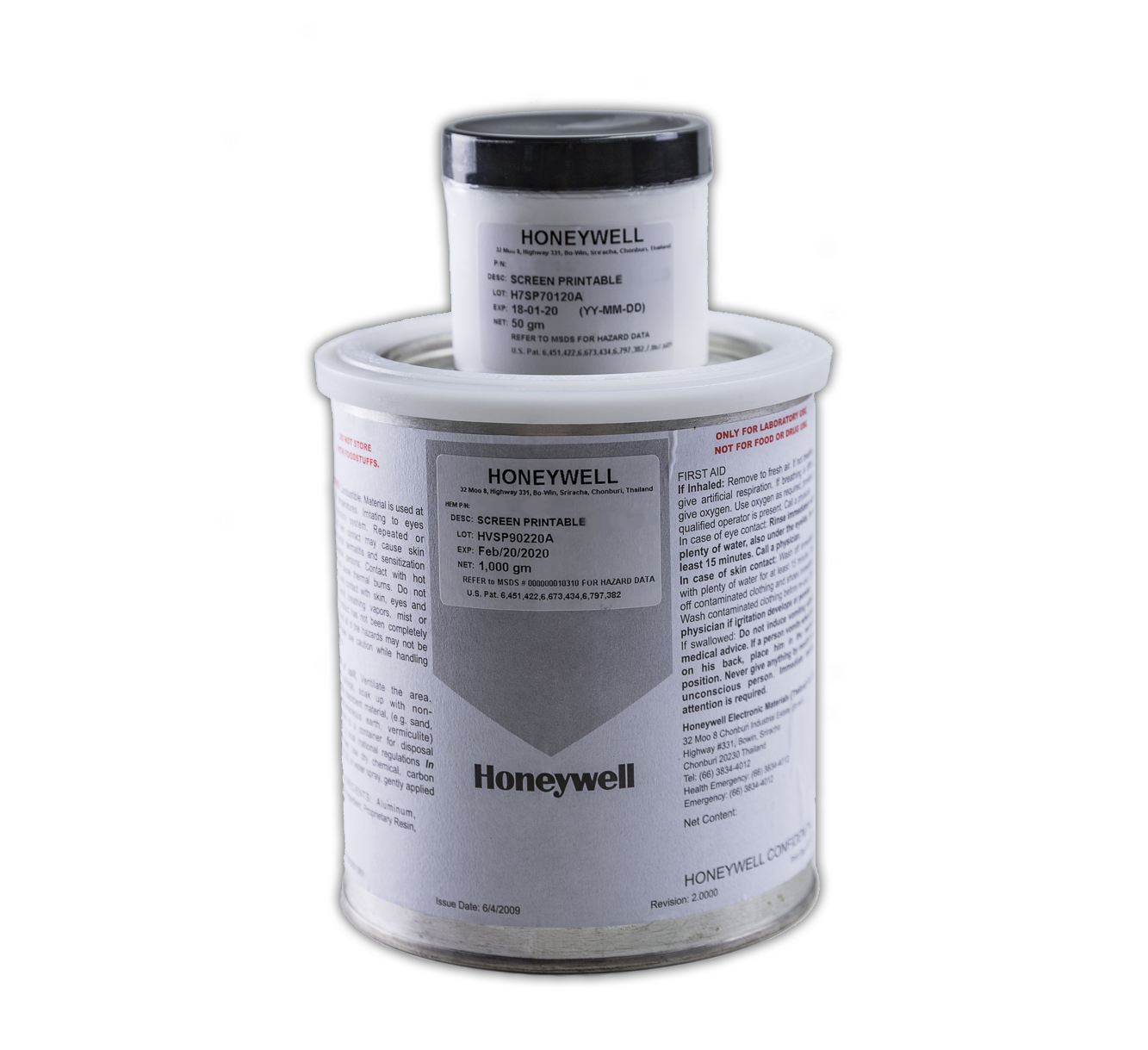PTM 5000-SP | Phase Change Paste
- 0.06 - 0.08 Thermal Impedance
- 3.5 - 4.5 Thermal Conductivity
- Stencil Printable
Product Description
PTM5000-SP is Honeywell's thermally conductive phase change paste, which is available in Stencil printable form. It is designed to minimize thermal resistance at interfaces and maintain extremely stable performance through reliability testing required for long product life applications.
PTM5000-SP has a Thermal conductivity of 3.5 - 4.5 (W/m·K) depending on the bondline thickness and is based on a robust polymer PCM structure that exhibits excellent wetting properties during typical operating temperature ranges, resulting in very low surface contact resistance. The proprietary material provides superior reliability and maintains low thermal impedance (0.06-0.08) , making it desirable for high-performance integrated circuit devices.
Technical Specifications
| General Properties | |
| Specific Gravity Specific Gravity Specific gravity (SG) is the ratio of the density of a substance to the density of a reference substance; equivalently, it is the ratio of the mass of a substance to the mass of a reference substance for the same given volume. For liquids, the reference substance is almost always water (1), while for gases, it is air (1.18) at room temperature. Specific gravity is unitless. | 2.3 |
| Thickness range | 0.20 - 1.00 mm |
| Electrical Properties | |
| Volume Resistivity Volume Resistivity Volume resistivity, also called volume resistance, bulk resistance or bulk resistivity is a thickness dependent measurement of the resistivity of a material perpendicular to the plane of the surface. | 3.0x1015 Ohms⋅cm |
| Thermal Properties | |
| Thermal Conductivity Thermal Conductivity Thermal conductivity describes the ability of a material to conduct heat. It is required by power packages in order to dissipate heat and maintain stable electrical performance. Thermal conductivity units are [W/(m K)] in the SI system and [Btu/(hr ft °F)] in the Imperial system. | 3.5 - 4.5 W/m.K |
| Thermal Impedance | 0.06 - 0.08 °C·cm²/W |
Additional Information
When choosing a printable paste it is important to understand the process parameters and limitations.
That's why we ask, when you contact us, to include the following information:
- What is your print thickness?
- How long is your printing time and working window?
- What is your drying step after printing?
- Temperature (Room temperature or something else?)
- Time
- Do you have any viscosity limitations in the printing process?



